
Question: The first time Sarah goes out clubbing with Chenille, they run into some other girls from their school. One of them is Nikki, who gets mean and says that she's 'not walking on eggshells just because someone brought the Brady Bunch to the N*gro club'. Chenille gets offended and yells "Nikki, you did not just call me a N*gro." How is the term N*gro offensive? Or were they just not allowed to say ni**err in this movie? (Perhaps to preserve the rating?) Someone please help - this has been driving me nuts.
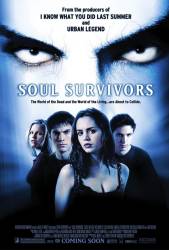
Question: Why is the very first scene, before the audience is introduced to any of the four main characters, included? If it was just to show the creepy guys Cassie believes are chasing her, why not just keep it at the gothic rave?
Answer: I believe it's both a red herring (Oh, another slasher teen horror) and an attempt at making it more believeable that there are these killers chasing Cassie throughout her 'dream'.
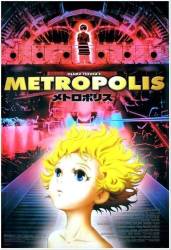
Question: The character Rock resembles Protoman (aka Blues in Japan) from the videogame Mega Man (Rockman) in appearance. Both wear shades and red clothing (Megaman has blue eyes and black hair and it's assumed that Proto has the same). The original Megaman characters and plot are very similar to Osamu Tezuka's Astroboy. With the character name, the robot themes, jazz/blues music, and the appearance, I was wondering if this was intentional on the animator's part or just coincidental.
Answer: If anything, Mega Man was influenced by Metropolis--Mega Man came around in 1987 and Metropolis first appeared in manga form in 1949.
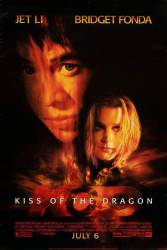
Question: Is it really possible to stop blood flowing from the brain with a pin stuck in the neck? Also, why does the blood not flow again after Jet Li has removed the pin?
Answer: 1). Yes it is possible. 2) If you listened while Li told the dying man what was happening, he said that when he pulled the pin out, the blood WOULD flow again, except: because of the empty blood vessels, there would be a vacuum effect that would suck too much blood too fast... therefore the guy dies.
Answer: The acupuncture point known as "Point 15" is in a delicate area of the spinal column, a little below the second cervical vertebra. It's a definite knock-out target in fighting, and it can even be a lethal target. But Jet Li's explanation that it somehow prevents blood from flowing away from the brain is pure nonsense.
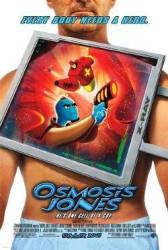
Question: If Frank got Anthrax by eating the egg in the monkey's mouth, shouldn't that monkey have been dead anyway?
Answer: We are never told that the monkey was sick with the disease. The egg does fall out of the monkeys mouth and onto the ground where the virus could have easily been on the ground and it just happened to come into contact with the egg.
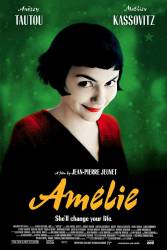
Question: How does Raymond Dufayel aka Glass Man know Amélie is looking for Bretodeau/Bredoteau aka The Box Man. He says "I've lived here for five years. This is the first time we've met." Then adding that he never goes out on the landing, they're all creeps. So my question is who told him Amélie was looking for The Box Man? Lucien the grocer boy maybe? As he delivers to his flat. Or maybe Madeleine Wallace the Concierge. (00:26:20)
Chosen answer: The Glass Man isn't as reclusive as he tells Amelie; he obviously talks to many people and spies on them with his binoculars (he knows all about Amelie's revenge on the grocer and the letter she wrote to Mrs. Wells). It isn't revealed where he got the specific information about Amelie's search for Dominique Bredoteau.
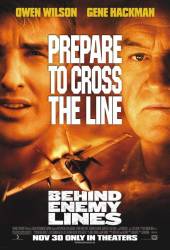
Question: What was Lokar hiding? And why did he want to keep it a secret?
Answer: Lokar was conducting a genocidal campaign against the Bosniak population, a severe war crime. The photos of the mass grave would have exposed him.
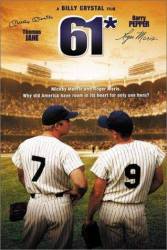
Question: Mickey Mantle was on a home run streak that year and then got hurt. I am just curious to know, if Mickey Mantle had been the one to break the record, if there would be such an uproar over it.
Answer: Actually Maris was MVP the previous year, 1960.
Answer: Probably not. Mantle was loved by the fans and the sports writers, plus he was a good layer. Maris never really had a good season before, or after, so a lot of people did not think he deserved to be the one to break the record.
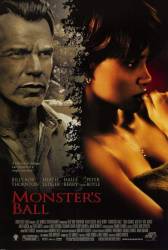
Question: During the infamous lust scene, several times you see people's hands inside a bird cage. What is the significance of this?
Answer: Symbolism for trying to break free of her situation.
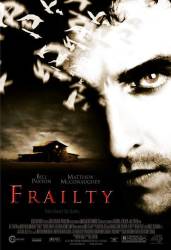
Question: The dad says Fenton is a demon, but demons were only people who have killed other people in their past, and Fenton hasn't killed anyone yet. It is later in the movie he kills his dad, so how did his dad know he was a demon?
Chosen answer: Paxton is obviously mentally deranged so he can call anyone a demon and find a way to justify it.
This answer is entirely incorrect. If you watch the film, you realise that it is only Fenton's belief that his father is insane. In the reality of the film, everything his father has told him is true. He is in fact a "demon killer." Since there is no explanation in the film as to what actually makes someone a demon, it's safe to assume the angel knew Fenton would grow up to become a serial killer. The father refused to believe his own son would be a demon, and so tried to force him to "see" the truth.
It really isn't "in the reality of the movie" - it is in the dad's psychotic mind (his warped sense of reality). What sane father, for example, would subject his children (preadolescents at that) to chopping people up with an ax, have them help dig graves and bury those killed, lock his 12-year-old son in a "dungeon" with no food and only one cup of water a day, check on his son after a week but nail the door closed again for another (apparently long) period of time? And I don't think Fenton became a serial killer - Adam was the serial killer (maybe of demons in his warped mind). The father seemed to assert that Fenton was a demon because he was not supporting him in killing people ("destroying demons"). Why didn't the father view Adam - who could be viewed as killing his own mother during childbirth - as a demon? Adam, being younger and more impressionable, agreed with the father but was also told they were like "superheroes" - what young kid could rationally discern the difference?
The cartoon shown on TV ("Davy and Goliath") offers additional evidence that the father was not destroying demons. "Davy" asks his father about God, and his father tells him that "God doesn't make you do anything" and wants you to decide. Even IF God or the angel sent someone a list of demons to destroy, it would be up to the person to decide whether or not to destroy the people. I know that the purported acts of the people that were killed were revealed when the dad (or Adam) put his hand (s) on them, and that viewers were then supposed to believe that they really were destroying demons, but the view that they were just hallucinating is still valid.
I think the movie allows the viewer to make his/her own conclusion - is the father really destroying demons or is he a cold-blooded murderer? There is sufficient reason to believe the father had a psychotic breakdown or something similar and, instead of destroying demons, was a serial killer. There was no evidence of any others being chosen by God to destroy demons, no indication that the world was coming to an end, and no reason to murder the sheriff who was leaving and said he didn't believe one bit of what Fenton told him about the killings. Besides, wouldn't God protect the father from the sheriff if He protected Adam from being detected by the FBI agents and cameras? For what it is worth, I disagree with the comment by Jason below and think your view is more accurate.
There are several important factors that show the father (and son) are actually fighting demons: The "help" they frequently receive, like ALL of the surveillance tapes not showing Adam's face when he's hunting a demon (This can hardly be dismissed as coincidence, as they all look fine except wherever Adam's face would be visible), the FBI agent at the end who inexplicably can't describe Adam and doesn't recognize him when they meet again, the fact that the victims are stunned after the father or Adam touches them with a bare hand to reveal their sins, etc.
I'm aware of all of those things, but videotapes used to do that - maybe if the FBI agents tried fixing the alignment his face would show. Adam looked different to me, too - his hair looked redder than when he was at the FBI office. Of course victims would be stunned and scared when a lunatic grabbed them. I do understand what you are saying, but I still don't think it is enough. Surely there were far more "demons" out there; the number of killings was relatively small. And, again, Davy said that God doesn't make anyone do anything - He wants the person to decide.
The point with the video tapes is that they say ALL of them are like the one, with the image only messed up across his face, and only when his face is visible. I suppose this is just an agree to disagree issue. You don't see these things as enough, while I see them all combined as more than enough. Interesting discussion of a good movie either way.
I was thinking of writing something like that to you! And now I can agree with something you wrote!
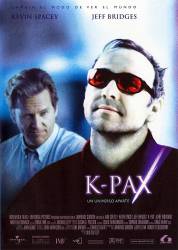
Question: Despite Dr. Mark Powell's certainty that "Prot" is a delusional man named Robert Porter who lost his mind and attempted suicide years earlier, no explanation is ever given for Prot's extraordinary resistance to powerful psychiatric drugs, his superhuman vision (into the Ultraviolet range), and his knowledge of deep-space astrophysics, which not only rivals but exceeds the knowledge of Earthly astrophysicists. Prot's enigmatic abilities are tested by experts, and the experts are left scratching their heads. The probability that Prot actually is an alien entity occupying a deeply-damaged and "discarded" human body seems confirmed on many levels, above and beyond the rantings of a mere mental patient. So, why does Dr. Powell consistently reject the hard evidence before his eyes?
Answer: He rejects it for two main reasons. First, each of the items you mention have possible, even if unlikely, explanations. Some people have strange or no reaction to certain drugs (for example I have almost no response to any painkillers). People who have had their corneas replaced with artificial lens can see near ultraviolet (though nowhere near 300-400 angstroms). The sheriff described Porter as being very bright, and he was in to astronomy, so while a great stretch, not impossible he somehow formulated the information he presented. The second reason, building upon these, is Occam's razor. As a person in the sciences, Dr. Powell is driven to believe things have a reasonable explanation, even if we don't currently know what it is, and thinking Prot is just a bright and unusual human is a more reasonable belief to him than believing Prot is an alien possessing a human's body.
Just remarking, there's no comparison of painkillers and psychiatric drugs. Thorazine and Haloperidol (Haldol) are both powerful anti-psychotic drugs with numerous side effects. Prot is immune to Thorazine and Haloperidol (as well as alcohol), which is more than extraordinary, it's otherworldly.
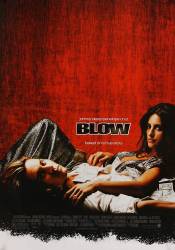
Question: Considering how small her role was (in relation to the film's running time), why did Penelope Cruz earn second billing behind Johnny Depp?
Chosen answer: A star's screen time does not equate to what position they are billed at on a film. It generally relates to the selling power of their name. The film's main star would obviously be Depp. Cruz however would still be higher than people like Liotta, Reubens, etc. as her name is more known. It also helps with selling the film to audiences than just a one actor film.
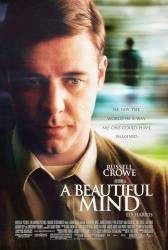
Question: What is written on the rear window in a foreign language?
Answer: You do not specify to which scene you are referring. The only window I recall with writing on it would be the window in Nash's room. John had covered this window in mathematical equations, theorems and geometric patterns. While most of the symbols used are Greek in origin, the language is simply that of mathematics.

Question: At the beginning of the mehndi party we can see a servant frying something - supposedly some sweets -, by pouring liquid batter into boiling oil though a bowl with a hole in the bottom. What is the name of the sweets he prepares?
Answer: The sweet he prepares is called 'jalebi' and it is exactly as you say, batter fried in boiling oil. It is poured through the bowl with a hole at the bottom to get its distinctive swirly pattern. Once cooked the batter is dipped in sugar syrup to make it sweet.
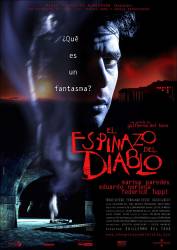
Question: What is Dr. Casares' first name? A clue was his handkerchief which had his initials.

Question: Did Mark Wahlberg do all his own singing?
Chosen answer: Wahlberg's songs were sung by Miljenko Matijevic, lead singer of "Steelheart".
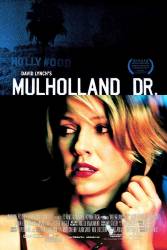
Question: Can somebody please explain to me everything that happened in Mulholland Drive? What is up with the bum behind the diner, the little people chasing Naomi Watts at the end, who is who, what is the key for? Ideally give a website reference which has a full answer, as a full answer will dominate this page.
Answer: There is no one right answer. See http://film.guardian.co.uk/features/featurepages/0,4120,634856,00.html for some theories from movie critics.
Answer: Naomi Watts killed her lover, Laura Harring, rather than lose her to someone else. She felt such guilt, she created an alternate reality using everything and everyone she knew, to create a happy and peaceful world. But the real world was sneaking in and the key was to unlock her blocked memories.
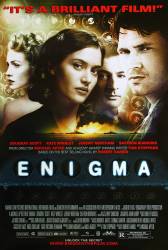
Question: Possible plot hole: Why did Claire take and hide the last 4 Kestrel messages?
Chosen answer: This is not a mystery. Claire "stole them to read them" as Tom Jericho told Hester. As he later explained to Wigram, she had taken the messages to give to Puck who had the means to decipher them, and who was looking for his missing brother. The Kestrel traffic from ADU contained the names of victims of the Katyn Massacre. However, Puck and Claire were surprised by the imminent reappearance of Tom, and suddenly fled, explaining why some messages were left behind.
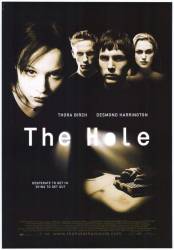
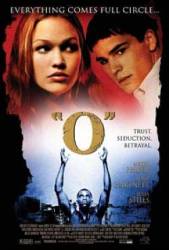
Answer: "N*gro" was the PC term in the 60's. While by no means vulgar, it has mostly fallen out of use and some people are offended by it.
Grumpy Scot